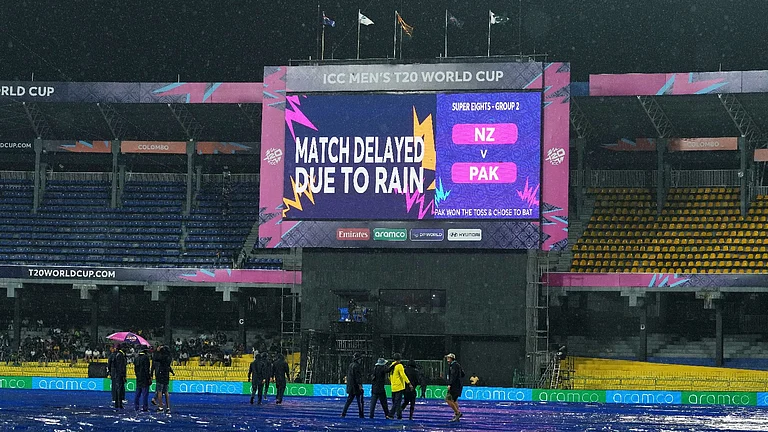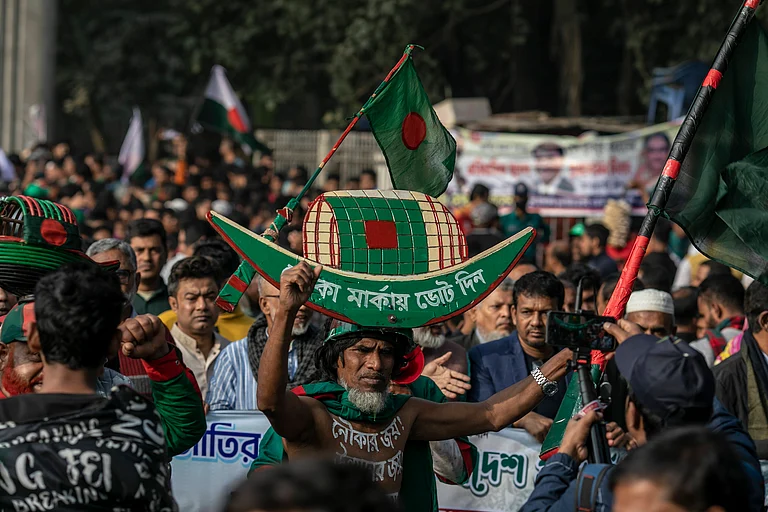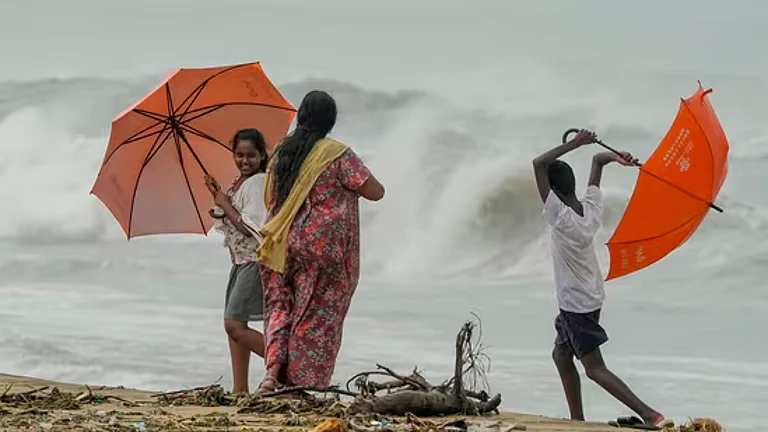
Mazhakaalam or monsoon season is an integral part of the natural cycle of seasons in Kerala
The three monsoon months of June, July and August are considered to be a time for reflection
Nature carefully places Chingam, the first month of the Malayalam calendar after the monsoons, to usher the festival of Onam
As the southwesterly monsoon showers lash down the tiled roofs in Kerala, the giant, oblong leaves of banana plants flap in the cold winds like the sails of a boat at sea. Nearby, the tall coconut palms rustle and shake themselves in a frenzy. The sky darkens with a dense accumulation of clouds carried by strong winds. And then, the rain god pours from the sky! His depth and power are unmistakable as rain falls onto land, clearing its surface, exposing jagged ends of stones long buried within. The vigorous sound of the rain overpowers all else, and man quietly retreats to safety.
Mazhakaalam or monsoon season is an integral part of the natural cycle of seasons in Kerala. Summers are meant to air the grains for storage, make endless varieties of pappadums, utilising sunshine to prepare for what is to come. While monsoons are much-awaited for respite from the summer heat, for rivers, ponds, and wells to be replenished, and most importantly, for farmers to rest and end a cycle of harvest, it also transforms the lives of the people there. The three monsoon months of June, July and August are considered to be a time for reflection. Like heavy rains that are interspersed with occasional sunny days, its people also learn to make the most of the unpredictable season.
Looking back at my childhood years in Kerala, monsoons would usually commence as schools reopened after summer. The excitement of brand-new shoes, bags and freshly stitched uniforms would soon fade away as muddy water often splashed over us, with speeding vehicles carelessly spraying over puddles. The wetness that emanates from new plastic raincoats and freshly opened umbrellas has a lasting fragrance like no other! The need to use umbrellas with interesting plastic, flowery handles, or brightly coloured raincoats that parents made such a fuss about was exciting.
Walking in the rain with an umbrella, rainwater dripping at each tip, was initially frustrating. Still, as our feet were eventually engulfed in wetness, water felt like a quiet companion who took over. Once school was done, jumping in puddles was every child’s delight. It was what parents dreaded and watchmen at the school gate scolded us for. Yet, it gave us endless moments of joy! Of course, the next day, we wouldn’t have shoes to wear as they would be soaked in rainwater.
Over weekends, paper boat races kept us busy. Bits of newspapers, discarded old pages of notebooks, were quickly folded into paper boats that were proudly set to sail in the drifting water from downspouts or street gutters. Umbrella in hand, we would carefully observe whose boat was the sturdiest. Secret techniques to fold cleverly were discussed, and there were lucky days when a boat could surprise you by going a long way.
Sometimes, a boat would pause and go in circles down eddying swirls, or be stuck against a large yellow leaf or twig. We felt like explorers aboard the Hispaniola, discovering new twists and turns that our boats manoeuvred around! The one whose boat succeeded by going a long way would find lasting happiness besides being the winner.
Armed with old plastic colanders and pieces of broken net tied to a stick, we would crouch down, flooding drains, trying to catch busy tadpoles, delicate little fish that would swim purposefully and collect them in plastic bags, like a portable aquarium. Counting how many fish one had caught was a triumphant feeling.
Young boys, their chappals discarded on the tender green grass, would play football, splashing about on rain-soaked grass with water trickling down their faces and necks. Indoor games were a saviour during the severe monsoon. A homemade version of the Ludo board would be drawn out with chalk on the floor, and cowries were used as pawns. The battlefield was set! The entire family came together for a game of carom or cards, which made for great times. Storytelling and enactment while huddled together in bed or at the dining table created drama set against the lashing rains. Hot glasses of tea and laughter created warm moments to tide us over stormy days, teaching us to recognise simple joys and bring about ingenuity in the wettest of times.
Roopa Srinivas has served as an educator for over two decades. She hails from Kochi, Kerala and lives in New Delhi. She enjoys reading and writing. Her biggest learning comes from interaction with children.























